Consumer habits are changing, and so are hospitality establishments. Business models are changing, and even the product itself, which is now more sustainable, sourced and traceable from bean to cup. Coffee machines are changing, which are now smart, connected and more efficient. What hasn’t changed is the pleasure (and desire) of enjoying a good cup of coffee…
There is no doubt that Spaniards are coffee lovers: 64% drink between one and two cups a day, mainly for the taste (63%) and to face the day with that boost of energy (50%). The data are from a study carried out by Java Republic, an Irish company specialising in premium organic coffee, which arrived in Spain in 2020 through Cafento, well aware that consumers increasingly value quality coffee.
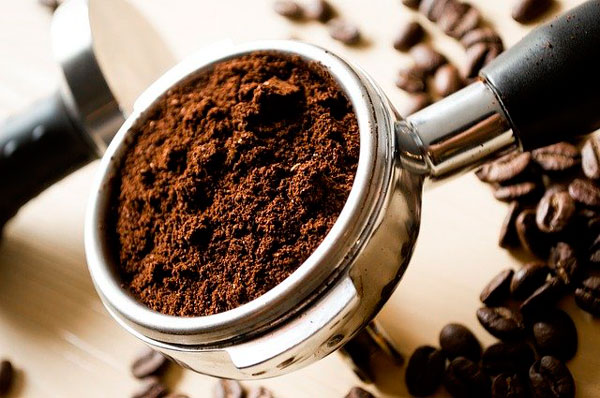
The pandemic has undoubtedly affected coffee consumption in the hospitality industry, but even in the ill-fated 2020, coffee was the second hot beverage most consumed outside the home in Spain, with consumption of 1.6 litres per capita in establishments such as bars or cafés, according to Statista data, compared to 2.6 litres per capita in 2019.
The recovery is predictable, and all indications say that coffee consumption in the hospitality channel is keeping pace with the sector’s recovery. However, something has been afoot in recent years: consumers’ perception of coffee is changing, and the very establishments that serve it are changing, too. A stroll through any city reveals how the “traditional” coffee shop is disappearing, giving way to profitable outlets run by organised chains that combine coffee with bakery and/or patisserie service, normally under the franchise formula, while at the same time, artisan bakeries are springing up with on-site service, as well as tiny temples dedicated to speciality coffee, devout advocates of traceable quality from the bean to the cup.
What the pandemic has done is to exacerbate changes that were already on the horizon and situate us amidst the so-called “third wave” of coffee, which stresses the importance of sustainable processing and sources to yield a high–quality product that is increasingly enjoyed as a veritable culinary experience.
However, there is still a long way to go, and although hospitality establishments seem to be generally more concerned about the quality of the coffee they serve, “the two big boxes left to tick are information and training“, says the Mare Terra Coffee Institute. “The information about the product we aim to drink is really important: knowing the country of origin, the estate, the name of the producer, the altitude, the rating… All this will tell us what the quality is before tasting the product, and we will know how the coffee has been handled in each stage.
On the other hand, training determines just how your cup of coffee will end up. A coffee served by a professional barista means drinking a perfectly extracted drink, in which the barista, with his or her knowledge, has brought out all its best aspects.”
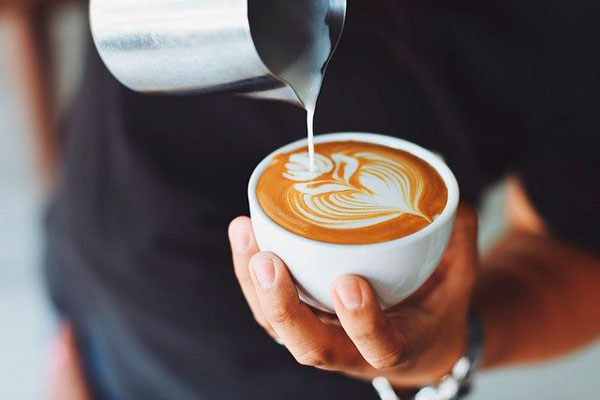
For example, the traditional arrangement most often found between roasters and establishments (whereby the roaster provides the coffee, leases the equipment and extracts a mandatory consumption quota in a years-long contract) is giving way to new business models in which establishments are “freeing themselves” and deciding to choose both their coffee and their own coffee machines.
In recent years, these new models, in practice, have led to the entry of the so-called speciality coffee shop, run by entrepreneurs with a commitment to serving quality coffee, teaching and training staff, raising awareness and advocating the figure of the barista. These establishments are committed to working with the entire coffee process, from selecting it, importing it, roasting it, tasting it … to serving the best cup possible.
The Netflix model comes to the coffee sector
But in addition to the speciality coffee phenomenon, another major innovation in the coffee-hospitality sector are new loyalty models. Interesting models abound, such as the start-up Coffeecard, which launched a virtual prepaid card in March with the aim of creating the largest network of independent coffee shops, thanks to a shared loyalty system. In this way, a wide network of independent coffee shops in different cities is promoted, which gain a higher customer flow.
How does it work? Coffee lovers with their Coffeecard app and virtual card have a guide to coffee shops in their city right on their phone; they can use it to pay for their drinks and order to go, and as members of the community, they can earn rewards and exclusive offers.

The idea is inspired by the benefits of the circular economy, which supports the local economy and local commerce. “We founded the business with a two-fold objective: improve the experience of customers who want to enjoy good coffee, and boost the digitalisation of classic and gourmet coffee shops to enable them to meet the post-Covid challenges and the changes and new trends in consumer habits,” explains Jean-Paul Devai, a project partner. “Our commitment is to independent cafés that offer a quality product, as a counterpoint to the rise of commercial cafés and coffee capsules.”
Another “Netflix” subscription-based model, but one aimed at offices and hospitality establishments (cafés, restaurants, bakeries and rural inns), is one proposed by Incapto Coffee, also from Barcelona, with an innovative integrated B2B coffee system focused on offices and restaurants.
Basically, it consists of the company “lending” a super-automatic coffee machine adapted to the needs of each business, which has technology to tally consumption. In this way, the restaurateur does not have to worry about ordering coffee, as the company can monitor stock levels and send coffee to the restaurateur before they run out, so that they always have fresh coffee. And a fact to bear in mind: Incapto only offers freshly ground speciality coffee; its rapid growth at home and abroad reveals the real demand for quality coffee.

“More and more private consumers and businesses are choosing our alternative because of the quality, a sustainable approach and economic savings,” says Francesc Font, co-founder of the company. “Our proposal allows you once again to savour freshly ground coffee, with the immediacy and convenience associated with capsules, but through a product that is more real and doesn’t create waste. We are transforming a totally unsustainable status quo.”
This demand for quality coffee, which the coffee companies themselves are well aware, are having them launch premium ranges of coffee for the hospitality channel: organic, speciality, sourced, freshly roasted…
New equipment
The change is also affecting the coffee machines themselves. The new equipment is smart and connected. The machines are eco-friendly, energy efficient, hygienic and safe. Carefully designed down to the smallest detail, they are easier to operate and more intuitive. From the most compact to the most complex, they all seek an optimal cup experience.
Equipment such as the new super-automatic La Solare, from Gaggia, a multifunction machine designed to meet the needs of today’s hospitality industry: from coffee-to-go and self-service hotel breakfast to coffee corners and full café service. Compact, intuitive, and easy to use, it guarantees outstanding thermal stability and high quality from the first coffee of the day. It has a milk emulsifier, automatic cleaning system, IoT connectivity and, if desired, it allows you to select and pay for drinks directly from your mobile phone without touching the machine. For all these reasons, it has received the Smart Label Award in innovation.

For small establishments, the new mini machine from Crem, called One, is a treat with its exquisite design that will captivate amateur and master baristas alike with its performance and results. It is perfect for those who want to enjoy espresso coffee in its simplest form and those yearning to experiment. All this thanks to a combination of high-performance functions such as the Push&Rotate button, which provide excellent control of the coffee extraction process; intelligent solutions such as the smooth and gradual low-pressure pre-infusion system; or the advanced menu display to control all the machine’s settings.
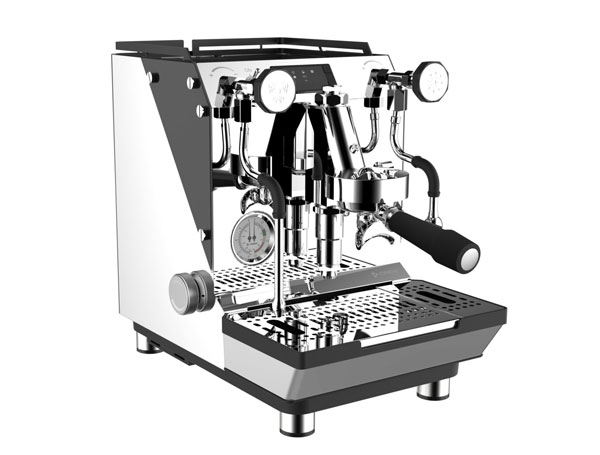
A growing trend is coffee drinks with milk, making devices such as QMilk from Quality Espresso highly useful in many hospitality establishments: a high-capacity stainless steel thermal bottle (6 litres) that automatically heats the milk in a bain-marie to achieve the optimum temperature for mixing with coffee. Lightweight and compact, it helps to speed up coffee service. Its perfect partner is QSteam, a small unit with a water outlet for brewing all kinds of infusions and the capacity to produce 15 litres of hot water per hour, plus a steam wand that generates more than 4 minutes of continuous steam to create milk foam for the most ornate cappuccinos.
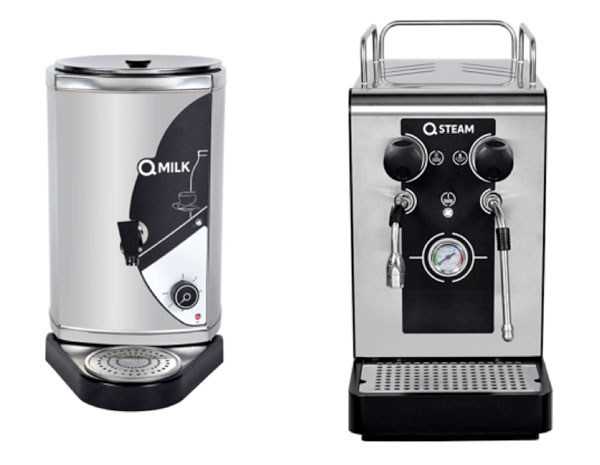
A perfect example of the great espresso machines loved by professionals is the La Spaziale S50, by Caffè d’Autore, which provides maximum control of the result in the cup with every type of coffee through the new ITC 3.0 system. Basically, it allows different temperatures to be set for each dose of each group, directly from the touch screen. In addition to this customisation, this new generation machine manages the heating, intelligently guaranteeing substantial energy savings. The boiler is also insulated to optimise energy consumption; there is also an Eco function with an energy consumption meter (Kw/H). Even the water for infusions is timed, with adjustable temperature.

But perhaps the most striking innovation in coffee equipment comes from contactless technology. The Azkoyen Group and the company Irisbond, a pioneer in “eye tracking” technologies, presented the first coffee machine that can be controlled with your eyes at the latest Mobile World Congress in Barcelona. Using infrared, the system analyses the user’s gaze and is able to calculate the exact point at which the user is looking in order to control the machine without the need for physical contact. For now, it is a prototype, but it will soon be a reality and undoubtedly be able to change the lives of many…
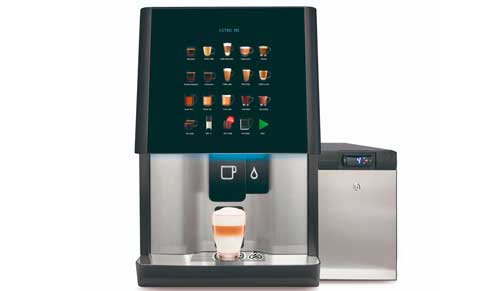
Marta Renovales, Chief Editor of (Profesionalhoreca.com)


